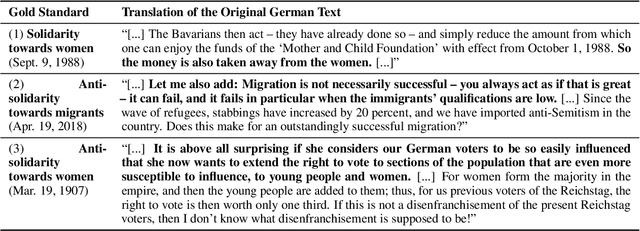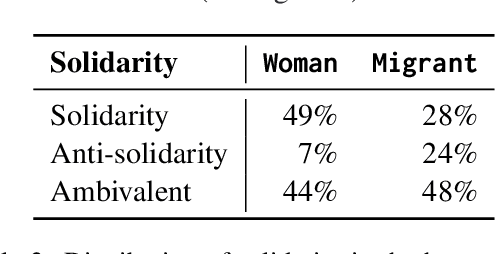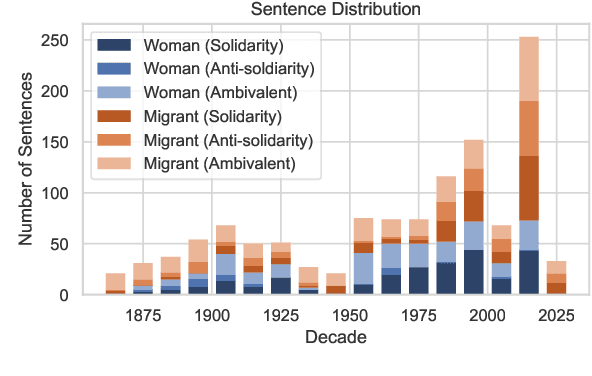Dominik Beese
FairGer: Using NLP to Measure Support for Women and Migrants in 155 Years of German Parliamentary Debates
Oct 09, 2022



Abstract:We measure support with women and migrants in German political debates over the last 155 years. To do so, we (1) provide a gold standard of 1205 text snippets in context, annotated for support with our target groups, (2) train a BERT model on our annotated data, with which (3) we infer large-scale trends. These show that support with women is stronger than support with migrants, but both have steadily increased over time. While we hardly find any direct anti-support with women, there is more polarization when it comes to migrants. We also discuss the difficulty of annotation as a result of ambiguity in political discourse and indirectness, i.e., politicians' tendency to relate stances attributed to political opponents. Overall, our results indicate that German society, as measured from its political elite, has become fairer over time.
Detecting Stance in Scientific Papers: Did we get more Negative Recently?
Feb 28, 2022



Abstract:In this paper, we classify scientific articles in the domain of natural language processing (NLP) and machine learning (ML) into whether (i) they extend the current state-of-the-art by introduction of novel techniques which beat existing models or whether (ii) they mainly criticize the existing state-of-the-art, i.e., that it is deficient with respect to some property (e.g., wrong evaluation, wrong datasets, misleading task specification). We refer to contributions under (i) as having a "positive stance" and contributions under (ii) as having a "negative stance" to related work. We annotate over 2k papers from NLP and ML to train a SciBERT based model to automatically predict the stance of a paper based on its title and abstract. We then analyze large-scale trends on over 41k papers from the last ~35 years in NLP and ML, finding that papers have gotten substantially more positive over time, but negative papers also got more negative and we observe considerably more negative papers in recent years. Negative papers are also more influential in terms of citations they receive.
 Add to Chrome
Add to Chrome Add to Firefox
Add to Firefox Add to Edge
Add to Edge